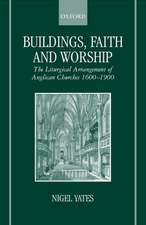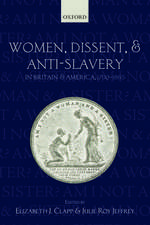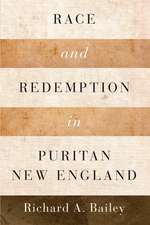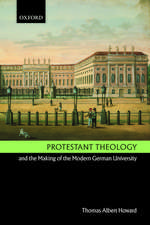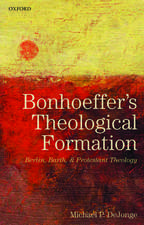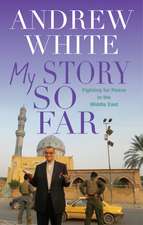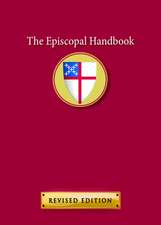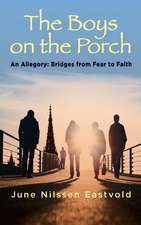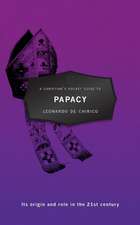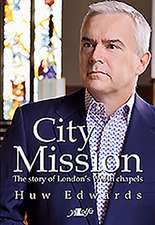The Literature of the Arminian Controversy: Religion, Politics and the Stage in the Dutch Republic
Autor Freya Sierhuisen Limba Engleză Hardback – 3 dec 2015
Preț: 702.75 lei
Preț vechi: 1008.17 lei
-30% Nou
Puncte Express: 1054
Preț estimativ în valută:
134.47€ • 140.77$ • 111.27£
134.47€ • 140.77$ • 111.27£
Carte tipărită la comandă
Livrare economică 26 martie-01 aprilie
Preluare comenzi: 021 569.72.76
Specificații
ISBN-13: 9780198749738
ISBN-10: 0198749732
Pagini: 308
Ilustrații: 14 black-and-white halftones
Dimensiuni: 164 x 241 x 25 mm
Greutate: 0.64 kg
Editura: OUP OXFORD
Colecția OUP Oxford
Locul publicării:Oxford, United Kingdom
ISBN-10: 0198749732
Pagini: 308
Ilustrații: 14 black-and-white halftones
Dimensiuni: 164 x 241 x 25 mm
Greutate: 0.64 kg
Editura: OUP OXFORD
Colecția OUP Oxford
Locul publicării:Oxford, United Kingdom
Recenzii
a very good book that offers stimulus to any scholar interested in literature, theology or politics, whether in the early modern or modern age.
Such infelicities do not nullify the value of this text that is often informative and insightful, showing how the literary culture added fuel to an already raging fire. Anyone interested in the Dutch context of the Arminian controversy will benefit from this volume.
The range of different sources and discourses Coster and Vondel made use of, clearly illustrates the interaction that existed between the ivory tower and Grub street; between theological treatises and academic writings on politics and history, on the one hand, and pamphlets, poems, plays, satire and libels, on the other. This interaction was not only intellectual. Sierhuis also unearths many personal connections that existed between members of the Academie and their more radical sympathisers, and the political and academic elite of the Dutch Republic.
Erudite, authoritative and lucid, Freya Sierhuis's first book is a notable contribution to both the literary history of and historical scholarship on the Netherlands in the tumultuous first half of the seventeenth century. Providing a fresh perspective on the divisive Arminian controversy that tore apart the fledgling Dutch Republic between 1609 and 1619, it also lays down an important marker regarding the relationship between theology and imaginative writing, Latinate literature and vernacular pamphleteering, and ecclesiastical politics and libellous popular poetry and drama.
Freya Sierhuis's remarkable ability to bring together the challenging theological and political issues of the day with the polemical satires of the popular press and the polished drama of the theatres makes her Literature of the Arminian Controversy a compelling and important contribution to our understanding of the Dutch Republic.
Sierhuis's splendid analysis goes a long way toward illuminating the heart of the religious and political crises ignited by the Arminian controversy: the related battles over "predestination, the locus of sovereignty in the Republic, the relationship between the clergy and the civil magistrate, and the concomitant debates on liberty of conscience". It models theological precision in political historiography, and will prove useful to students and pastors, as well - not least for reminding its reader to register the dignity and danger of ideas at play in the contemporary public sphere.
... probably is the best account of the Arminian controversy in the English language to date. For that feat, Sierhuis should be congratulated.
Such infelicities do not nullify the value of this text that is often informative and insightful, showing how the literary culture added fuel to an already raging fire. Anyone interested in the Dutch context of the Arminian controversy will benefit from this volume.
The range of different sources and discourses Coster and Vondel made use of, clearly illustrates the interaction that existed between the ivory tower and Grub street; between theological treatises and academic writings on politics and history, on the one hand, and pamphlets, poems, plays, satire and libels, on the other. This interaction was not only intellectual. Sierhuis also unearths many personal connections that existed between members of the Academie and their more radical sympathisers, and the political and academic elite of the Dutch Republic.
Erudite, authoritative and lucid, Freya Sierhuis's first book is a notable contribution to both the literary history of and historical scholarship on the Netherlands in the tumultuous first half of the seventeenth century. Providing a fresh perspective on the divisive Arminian controversy that tore apart the fledgling Dutch Republic between 1609 and 1619, it also lays down an important marker regarding the relationship between theology and imaginative writing, Latinate literature and vernacular pamphleteering, and ecclesiastical politics and libellous popular poetry and drama.
Freya Sierhuis's remarkable ability to bring together the challenging theological and political issues of the day with the polemical satires of the popular press and the polished drama of the theatres makes her Literature of the Arminian Controversy a compelling and important contribution to our understanding of the Dutch Republic.
Sierhuis's splendid analysis goes a long way toward illuminating the heart of the religious and political crises ignited by the Arminian controversy: the related battles over "predestination, the locus of sovereignty in the Republic, the relationship between the clergy and the civil magistrate, and the concomitant debates on liberty of conscience". It models theological precision in political historiography, and will prove useful to students and pastors, as well - not least for reminding its reader to register the dignity and danger of ideas at play in the contemporary public sphere.
... probably is the best account of the Arminian controversy in the English language to date. For that feat, Sierhuis should be congratulated.
Notă biografică
Freya Sierhuis was trained at the University of Amsterdam and the University Cambridge and obtained her PhD at the European University Institute in Florence. She held an Exzellenzinitiative Fellowship at the Ludwig-Maximilians-Universität Munich, and currently works at the University of York. She specializes in literary culture and intellectual history of England and the Dutch Republic in the 16th and 17th century. Her current project is a monograph study of the Elizabethan poet and statesman Sir Fulke Greville. Together with Brian Cummings, she is editing the philosophical treaties for the forthcoming Clarendon edition of the Complete Works of Fulke Greville.

